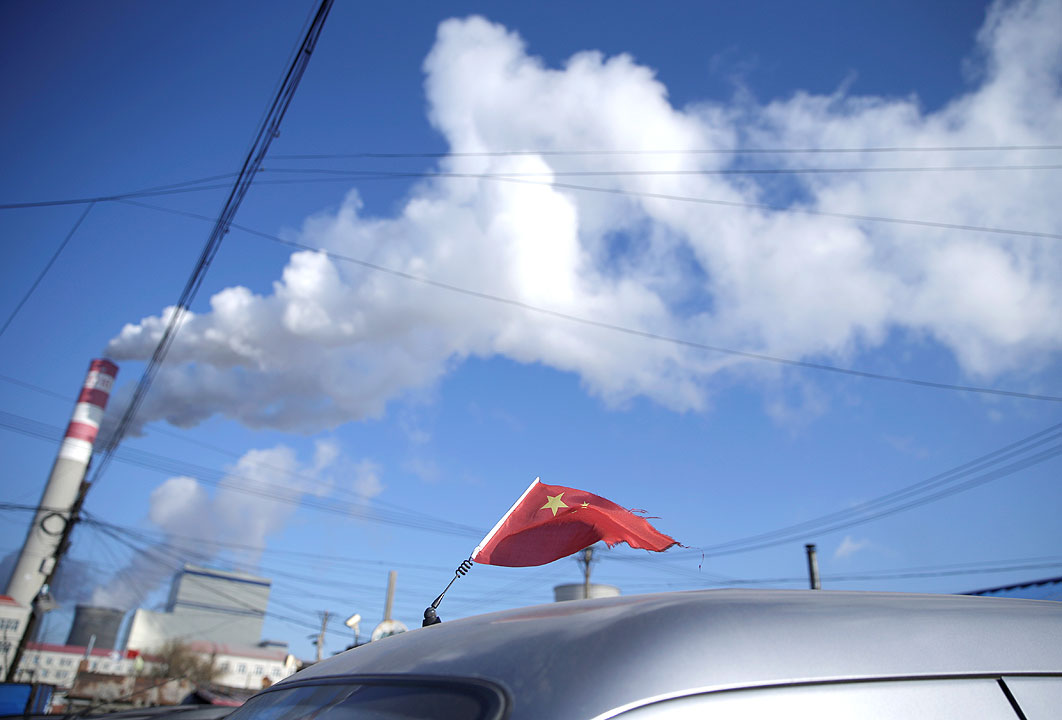China’s move vs coal seen to expedite PHL energy transition

By Angelica Y. Yang, Reporter
CHINA’S MOVE to stop building new coal plants abroad will likely speed up the Philippines’ energy transition away from coal and other inflexible baseload power generation projects, according to nongovernment organization Institute for Climate and Sustainable Cities (ICSC).
Chinese President Xi Jinping last month announced that the country “will not build new coal-fired power projects abroad” while ramping up support for emerging nations to develop green and low-carbon projects.
“We certainly expect Xi’s announcement to further accelerate the energy transition in the Philippines. Xi’s announcement provides ballast to (Energy Secretary Alfonso) Cusi’s bold position to leave behind coal and inflexible baseload generation technologies,” ICSC Executive Director Renato Redentor Constantino told BusinessWorld over e-mail last week.
“The faster the transformation, the better it will be for the economy given the criminal intermittency of all coal power plants in the Philippines, which has resulted in outages, spiking power prices, and windfall profits of coal generators while working Filipinos suffer from pandemic-induced difficulties,” he added.
According to Mr. Constantino, Chinese companies are involved in five Philippine coal facilities under development. These include 700-megawatt (MW) plant in Jose Panganiban, Camarines Norte; 1,320-MW plant in Mariveles, Bataan; 1,200-MW plant in Atimonan, Quezon; 270-MW plant in Villanueva, Misamis Oriental; and 105-MW plant in Zamboanga City.
However, he clarified that it still remains unclear which of these power projects will be affected by Mr. Xi’s pledge and the Energy department’s ongoing moratorium on endorsing greenfield coal projects.
“If the campaign against coal were an epic novel, President’s Xi’s announcement represents the first sentence of the epilogue,” he said.
The Philippines is likely to see a decline in coal financing support and in the entry of Chinese renewable energy (RE) players, according to Greenpeace Campaigner Khevin Yu.
“China is now putting the final nail in the coffin for coal investments. This also shows the need for financing institutions and investors to revisit their investments and analyze the profitability and reliability of coal,” he told BusinessWorld via e-mail over the weekend.
Mr. Yu added that China’s previous commitment to ramp up renewable energy investments may help scale up the Philippines’ renewable energy systems.
However, Mr. Yu pointed out that China’s promise to stop building new coal-run plants in other countries does not cover other fossil fuel sources such as gas.
The Institute for Energy Economics and Financial Analysis (IEEFA) believes that the Chinese President’s decision to end its involvement in overseas coal financing is a significant development for the global energy industry since Chinese capital, along with Japan and Korean investments, has underwritten almost all new coal projects built globally since 2017.
“China’s decision will likely accelerate current global energy trends, in which investors are increasingly understanding the financial risks associated with coal investments and shifting capital to cleaner, cheaper energy sources,” IEEFA Energy Finance Analyst Sam Reynolds told BusinessWorld over e-mail last week.
He observed that the Philippines is part of the shift to cleaner power, as seen from recent announcements from Ayala Corp. and San Miguel Corp. which have decided to no longer back new coal projects, and domestic banks including Bank of the Philippine Islands and Rizal Commercial Banking Corp. which have pledged to reduce their exposure to coal assets.
“Ultimately, China’s announcement and recent developments in the Philippines demonstrate that the days of coal-fired power are numbered,” Mr. Reynolds said.



